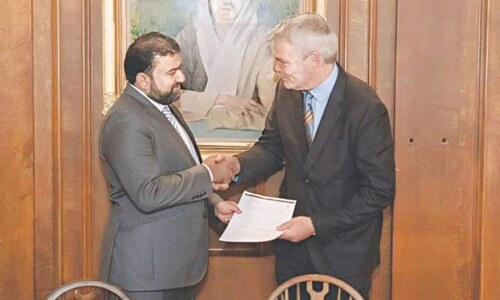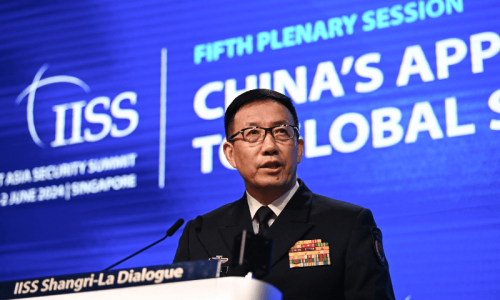ISLAMABAD: Despite Prime Minister’s deferment, the Economic Coordination Committee (ECC) of the Cabinet has issued policy guidelines to the Oil and Gas Regulatory Authority (Ogra) for change in the gas pricing mechanism that is estimated to increase consumer tariff significantly.
Informed sources said that new guidelines issued to Ogra would effectively double the amount of system losses to be charged from consumers and dilute the ongoing investigations into Rs82 billion Ogra scandal case ordered by Supreme Court.
The ECC had decided to issue new policy guidelines to Ogra in a meeting on Nov 20. On the very next day, while presiding over a meeting of the cabinet committee on energy, Prime Minister Nawaz Sharif had rejected the gas tariff increase and deferred a final decision pending a comprehensive briefing on system losses, international benchmarks, efficiency of gas companies and impact on consumers to justify revision in gas tariff.
Sources said that the SNGPL has yet to refund about Rs13bn ordered by the Lahore High Court on account of higher unaccounted for gas (UFG) charged to consumers about four years ago.
According to a copy of policy guidelines on determination of revenue requirements of gas utility companies available with Dawn, the Ogra has been directed to provisionally allow four different heads of gas volumes in the consumer tariff.
These include “volumes pilfered by non-consumers but detected and determined by the companies in accordance with Ogra procedure as provided in Rule 30 of natural gas licencing rules, 2002, volumes consumed in law and order affected areas and impact of change of bulk-retail ration on UFG using the base year as 2003-04.”
The additional charge to consumers would also include the provision of doubtful debts as determined at one per cent of the total gas sales, the policy guidelines said.
The guidelines asked the Ogra to complete UFG study as soon as possible but desired that the issue of treatment of incomes form non-core activities, like late payment surcharge, meter manufacturing plant, royalty from JJVL and sale of condensate/LPG may be dealt with at the time of finalisation of new tariff regime.
The directives also indicated the ECC was aware of the fact that changes in tariff mechanism would have a bearing on the Rs82bn Ogra scandal case.
Therefore, it put the onus of responsibility on the Ogra, saying that “the above provisional arrangement must not contravene judgment of the Lahore High Court in the matter, nor it should adversely affect the ongoing investigations in Ogra scandal in pursuance of the directions of the Supreme Court.”
The combined impact of all these heads has been estimated at Rs65-70bn for three fiscal years ie 2012-13, 2013-14 and 2014-15.
On the basis of these directives and parameters, the Ogra would work out adjustment in consumer tariff, along with its existing tariff determination requiring about Rs51bn (about Rs33bn for SNGPL and Rs17bn for SSGCL).
Officials well versed with the issue said that as a result of these policy guidelines, the amount of UFG charged to consumers through tariff was estimated to increase from existing 4.5 per cent to about 9pc.
They said the impact of this increase would translate into Rs13.5bn additional burden on consumers per year.
Former chairman of Ogra Tauqir Sadiq and two former Ogra members were accused of increasing UFG from 4.5pc to 7pc and have been facing court cases since then.
A former member of Ogra said the policy guidelines now issued by the ECC have “proved the former Ogra chairman Sadiq as a visionary.”
These officials said the ECC was not legally empowered to issue policy guidelines on UFG in the first place because it a direct jurisdiction of the Ogra which it has been exercising since its inception in 2002 under Section 8 and 21 of the Ogra Ordinance.
They said that allowing village gasification on the demand of parliamentarians was not the responsibility of gas companies and its cost could not be charged to consumers and without fulfilling requirements of existing consumers, gas companies could not increase their network under the rules.
They said the 4.5pc UFG allowed in the consumer tariff was in fact meant to reasonably cover the cost of pilferage, leakage, loss in security situation and all other difficulties.
The Ogra was obligated to refuse policy guidelines that were not consistent with Ogra ordinance under Dec 21, 2012 orders of the Supreme Court.
Published in Dawn, December 16th, 2014









































Dear visitor, the comments section is undergoing an overhaul and will return soon.